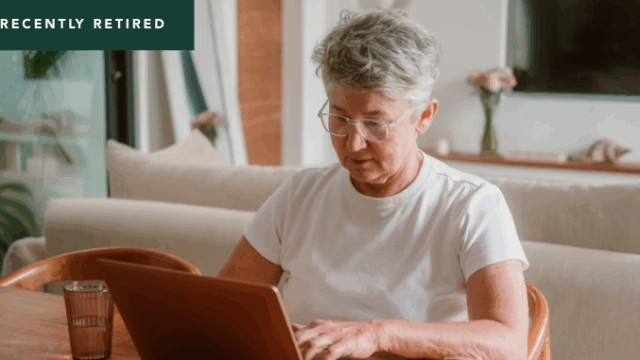CCMI invited speaker and author Amy Florian to present in a virtual session to clients and friends of the firm. Amy’s message aimed to help us understand what we are feeling as a result of the coronavirus and to find ways to overcome stress and anxiety during these unusual times. For those able to attend the webinar, we thank you for making the time to join us. Here are the key takeaways from the session:
COVID-19 has brought many changes, including the loss of the prior life that we were accustomed to living. Amy indicated that many of us are actually feeling grief, which is a reaction and emotional state related to loss or change.
There are six triggers or types of loss related to grief, which we may be experiencing during this pandemic:
- Relationship – Loss of relationships due to separation physically or emotionally.
- Material – Loss of your paycheck, losses in your portfolio, or change in living situation.
- Role – Loss of your usual role and perhaps taking on a new role during quarantine, such as being a caretaker to a parent or a teacher to your children.
- Functional – Loss of the ability to do something such as going to the gym, restaurants, the beach, or your other favorite places.
- Intrapsychic – Loss of dreams or vision or “what might have been?” Missing out on prom, graduations, weddings, vacations and other special events.
- Systemic/Assumptive – Loss of understanding of how life is supposed to work or loss of faith and trust in the systems that are in our life. Is the government working the way it should? Are the hospitals safe? We feel as though we should have more control, but we don’t have control over the situation.
Recognizing and understanding our grief is the first step to moving forward with it. While emotions are not good or bad, what we do with them can be. It is okay to allow ourselves to grieve and not worry about trying to fix it. It can be beneficial to share your grief with others as we are all experiencing loss together.
For those of us who have children, it’s important to allow your kids to grieve. As a society, we like to “fix” things; however, when it comes to grief, it is better to stop, breathe and listen. Kids need to know that part of getting better is talking about it when you don’t feel okay. They are very observant of adults and if they notice that adults are acting like nothing is wrong, they may isolate themselves to grieve alone. You can assure your children that you can get through it together as a family.
Here are several tips that Amy shared which can help alleviate some of the stress you are feeling:
Get Physical – find ways to exercise, go for a walk or dance at home like no one is watching. You can even try stomping your feet for as hard as you can for 10 seconds. These actions can help release “feel good” endorphins. Additionally, she shared that many academic studies have shown that physical expression is helpful in preventing depression and even has a positive impact on those with dementia.
Take Virtual Tours – take advantage of the internet and tour places and museums virtually that you might not otherwise get to see.
Be Artistic – drawing and painting can be ways for you and your children to express difficult emotions.
Incorporate Music – listen to music, sing out loud, play an instrument or use the time to learn how to play one.
Take Care of Your Body – slow down your breathing; take deep belly breaths three times in a row, which creates a relaxation response in your brain. Stay hydrated by drinking water throughout the day. Soak in a bathtub to help relax and maybe even lower your blood pressure.
Choose to be Positive – collect various sayings and/or prayers that give you strength and post them around your house on sticky notes. When you pass one of the sticky notes, always stop to read it out loud. Notice the beauty around you in nature or in the face of someone you love.
Write – keep a journal or notebook – you can write whatever you want and no one has to see it. If you have trouble sleeping, write for 10 minutes before going to bed to get the thoughts out of your head and onto paper. You can also write down your fears and brainstorm how to balance those fears out. Writing down your fears helps take away some of their power.
Connect with Others – call those you haven’t seen or send them a hand-written note, smile and wave to your neighbors when you see them, and use apps to have virtual meetings, happy hours, book club meetings or play games together. Meet up with friends in a parking lot or driveway and sit in your cars or lawn chairs while you talk to each other.
Limit News and Social Media –Set boundaries of how long you want to spend getting news or social media updates throughout the day; for example, take in 15 minutes twice a day, then shut it off or it may paralyze you. We tend to have a negativity bias where negative events have four to five times the sticking power of positive events. The media knows this and seeks to trigger our negative bias.
Help Someone – donate blood, donate food to your local food supply pantry, or give an extra tip to the food delivery driver. Get groceries or run an errand for someone who may not want to risk leaving their house.
Smile and Laugh – smiling sends positive energy to yourself and others. Even if you are wearing a mask, people can tell you are smiling in your eyes. Watch a classic comedy movie or read a funny book. Laughing releases dopamine which serves as a reward for the brain.
Perform Random Acts of Kindness – consider calling or sending a note to someone who may be lonely or may not have anyone reaching out to them. Send a card to someone you care about. Write letters to your kid’s teachers. Write letters to people who are in nursing homes.
Practice Gratitude – Make a list of everything you are grateful for and review it regularly. Everyday add one more item to your list. You can use a journal for this and include things you did to make someone else smile.
Reflect – take time to reflect and understand that life is a gift and we are not in control. Tell the people you love that you care about them and how important they are to you. Appreciate all you have and reprioritize if needed to live your life fully.
We know these are unusual times and that “this too shall pass.” While there continues to be uncertainty in how the future will unfold, getting wrapped up in the anxiety of the future will not help. Use the self-care techniques above and do what you can right now, in the present moment. Realize that once the crisis passes we may not be back to normal, but you may be able to enter a new future that is even better than what we all left behind!
If you have questions or are experiencing stress as it relates to your financial situation or your portfolio, please reach out to CCMI’s advisors, who would be happy to listen and talk to you about the changes you are seeing.
Amy Florian is the CEO of Corgenius and she combines the best of neuroscience and psychology with a good dose of humor in training professionals to build strong relationships with clients through the losses and transitions of life. You can read more about Amy by visiting her website www.corgenius.com.
CCMI provides personalized fee-only financial planning and investment management services to business owners, professionals, individuals and families in San Diego and throughout the country. CCMI has a team of CERTIFIED FINANCIAL PLANNERTM professionals who act as fiduciaries, which means our clients’ interests always come first.
How can we help you?






